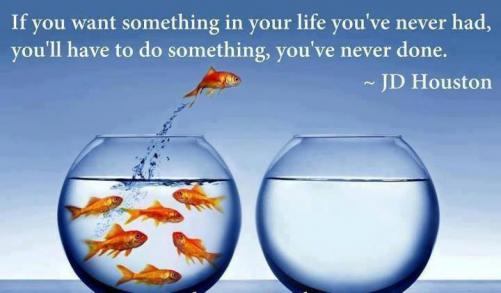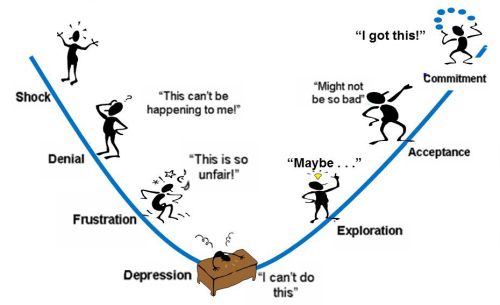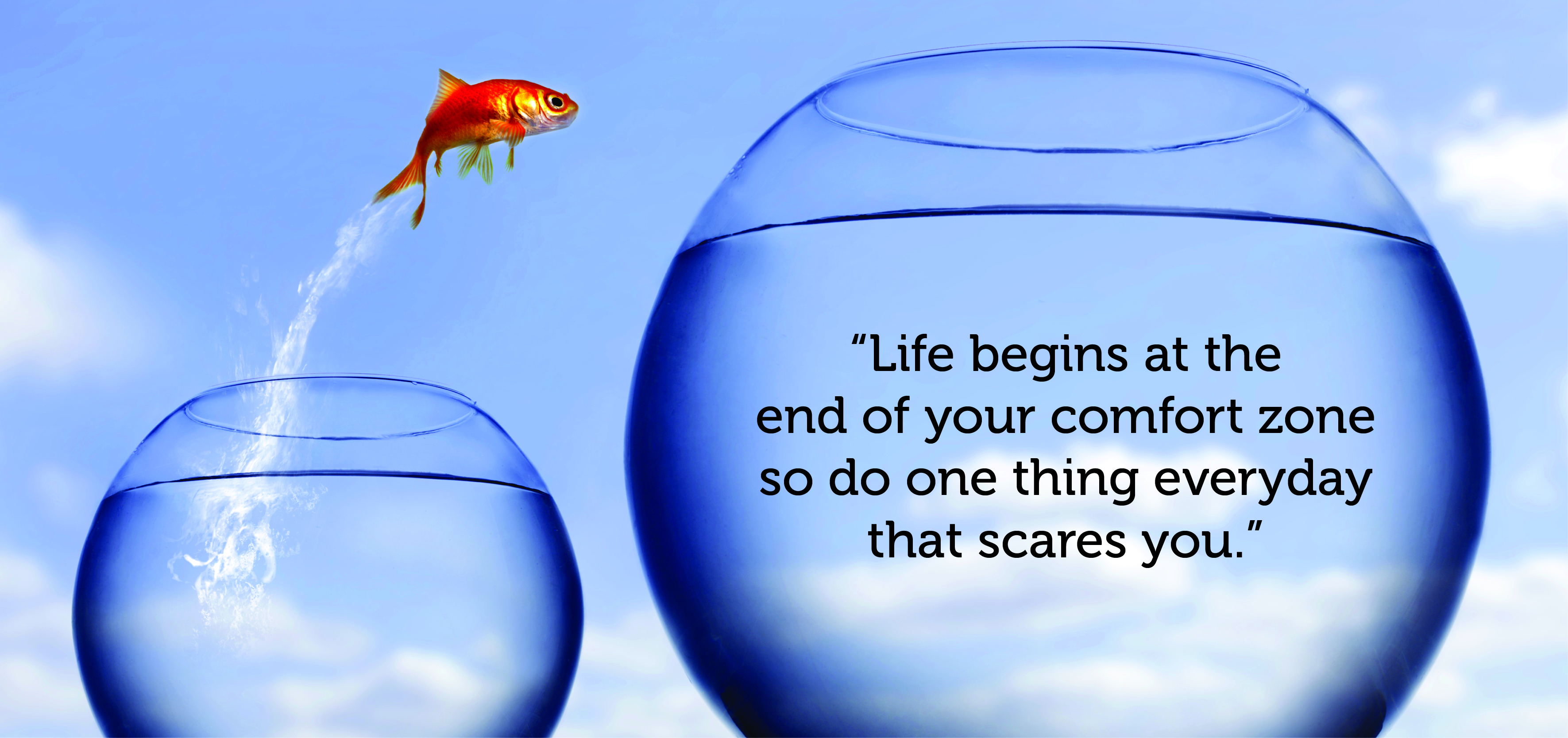By Sarah Godfrey
 Okay so you heard them say it. You watched the new personnel arrive and the renovations are in full swing. So why do you feel so anxious? Why does change in our work environment make us so nervous?
Okay so you heard them say it. You watched the new personnel arrive and the renovations are in full swing. So why do you feel so anxious? Why does change in our work environment make us so nervous?
Let’s be real. Nothing goes smoothly in life. Change in the workplace is going to be just as turbulent, difficult at times and frustrating as change can be in our personal lives. The workplace environment is a home away from home. We build relationships, spend the majority of our week there and have built routines and patterns that ensure we are effective, safe and comfortable in our work places and with the people we work with.
Then our employers decide they need to change everything.
Our first reaction is to feel powerless.
This change is being forced upon us. We become defensive, fearful and resistant to the new ideas delivered to us. (Ever heard yourself say, “there was nothing wrong with the way it was,” or “does that mean it’s out with the old and in with the new?” or “ am I going to lose my job?”). Our reactions are an undercurrent of our need for routine and stability. It is a natural, yet an unnecessary, expenditure of emotional energy.
Part of our reaction to change is structured into our individual personality. Characteristics that we are born with (associated with a sense of autonomy, understanding, individualisation and self-reliance), are linked to our ability to cope with change. Other factors like flexibility, adaptability, intellectual curiosity and understanding play a major part in accepting and managing change. In other words some of us are wired to cope with change. We take change on board like we breathe. Excited, energised and anticipatory of something novel arriving. Change stimulates the brain, motivates and taps into our strengths.
For the rest of us we have to work just a little harder at helping our brains adapt and accept the novel and unknown.
We need to coax our anxiety out of the shadows where it is ruminating about the hundreds of unwanted possibilities the change will trigger. New job roles, new skills, new staff, new policies and even new workplace environments. Too many ‘news’. And with that the fear. Can I cope? Will I learn the new tasks? Will I get on with the new staff? Will I fit in the new image? The brain becomes panicked and our ability to adapt stops.
 Change is the only constant in our lives.
Change is the only constant in our lives.
We change from child to adult, from single to coupled, from parent to grandparent, employed to retired, so many changes we experience we naturally accept and often strive for. The workplace environment is merely an extension of that. It cannot remain static. It needs to grow, upgrade, expand, shift with economic and structural needs, move with new staff, ideas and knowledge. If it doesn’t the workplace will eventually fold. We want change. We need change. We should seek it and celebrate when it arrives because it gives each of us a chance to grow.
Some of you in the workplace will change their work role and thrive. Some will decide to leave. Neither choice is wrong, only different. Each step forward is movement towards learning something more about yourself, how you cope and how you need to keep growing, personally and professionally.
Happiness is a concept consisting of many components.
A large piece of the How to Be Happy Pie is in our ability to accept change, be flexible and adaptable. If we start to block change, stamp our feet and refuse to move with it we lose the moment to challenge ourselves on a personal development level and participate in the new. Our negativity can become a contagion amongst our colleagues. A staff room can become a space to complain and moan instead of encourage and excite. No matter what shifts and moves around us we are responsible for our own happiness and the way we accept the inevitable.
Change will happen with or without us.
So when change knocks on your workplace door, try opening it and inviting it in. It is a lot more fun and enjoyable than slamming it shut.
Here are a summary of tips that can help you.
Remind yourself that change does happen personally and professionally. Expect things will be different at some point in the workplace and it will reduce your shock and anxiety.
Take note when change is starting to happen. Pay attention in meetings. Ask questions. Participate in the future of the organisation you work in. Be alert and open to the small signals that trigger your intuition that something is happen.
Recognise your state of mind. You may move through denial, shock, anger and finally acceptance. Seek help through your workplace support if you are getting stuck in any stage.
Start a conversation. The more you know the less anxiety. Even if you are anxious or worried about the answers the brain likes to know what is happening so it can problem solve. Keeping it in the dark feeds that anxiety. Watch the negative language. If you phrase everything negatively your brain is hearing it and your emotions will align with what you say. You need details and timelines so you can determine how change will directly and indirectly affect you, your work related relationships and your job role. Talk to people who know what is happening rather than colleagues who may be mixing rumours with facts.
The workplace is not the environment to doom and gloom but a good workplace will provide time and outlets to talk through your insecurities and concerns in a professional and confidential manner. Make a commitment and get those around you to do the same, to be positive. Make a game of turning each negative into positive. Negativity can spread amongst work colleagues like a virus. Try and stay away from rumours and gossip.
Check in on your own response. How are you going? Do you usually struggle with new and novel things? Are you taking the change personally or professionally? How is your mood state? How are others affecting you? (Have a look at the article on Contagion Stress ). Seek professional help if you are not coping. Check if your organisation have an Employment Assistance Program and use it to get sound advice on how to manage things.
Your chances of successfully moving forward in the changes is based on how quickly you can begin to adapt and be flexible. Use old skills in a new way. Everything you have learnt in the workplace can be adapted, used, expanded upon and reworked to fit with the new direction or changes in job criteria that may be coming your way. Find the similarities and start there.
Focus on the day to day tasks you need to complete. We can mistakenly act as if we don’t need to work hard during change. Insecurity and anxiety can affect our work and we can start to behave as if the work we are doing will become meaningless as soon as the new roles or positions come in to play. Don’t forget you are still a paid employee. This is not a time to slack off. Show your employer and team around you that you are professional in spite of uncertainty. Look for every and any opportunities that change can provide. Be involved, participate and project an image of positivity.
We can all get caught up in details that we don’t need to worry about. When change is forced upon us we need to stand back and big picture what is really happening. Project yourself into the near future, when the renovations are finished and you have a new beautiful workplace to come to every day, when the new boss has settled in and the changes have improved the workplace and created new opportunities, where the new staff end up being great to work with and help you become more professional and skilled in your job. Change can be frightening and disruptive. Cultivate the right attitude, pay attention to what you need to know and avoid getting caught up with gossip.
 The following is adapted from The 10 Rules of Change by Stan Goldberg
The following is adapted from The 10 Rules of Change by Stan Goldberg
Realise Behaviour is complex . Break down the behaviour. Separate your desired behaviour into smaller, self-contained tasks that can reduce the huge idea of change into progressive moments leading to change.
Change Is Frightening. We resist change, but fear of the unknown can result in clinging to status quo behaviours—no matter how bad they are. Examine the consequences. Compare all the outcomes good and bad and chose the behaviours that will bring the most positive outcome for you. The more positive you are and act the less anxiety you will experience.
Be realistic. Unrealistic goals increase fear. Fear increases the probability of failure. No change occurs overnight so don’t assume you will comfortable straight away. Give your self time and compassion to adjust and accept the new reality.
Change Must Be Positive. Enjoy the parts of change you can. You might not like all of the new and innovative ideas coming your way so focus on the ones you are looking forward to implementing or experiencing. Simplify the process, prepare for problems and stay calm.
